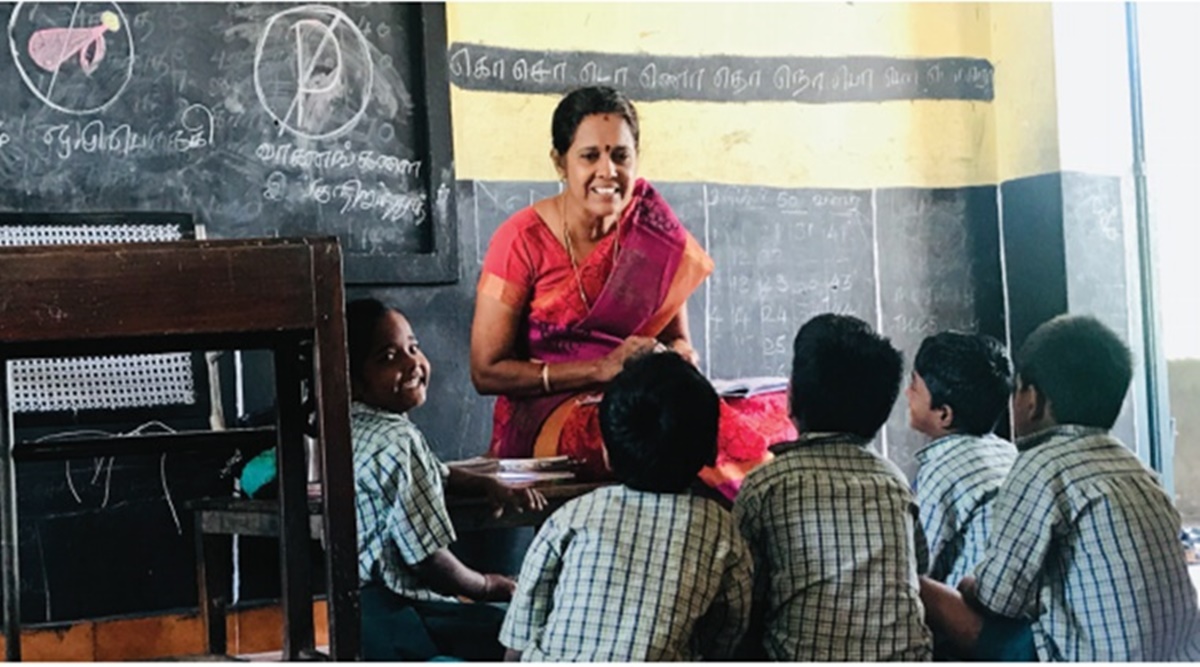 Becoming ready for school in itself may not seem an unreasonable demand but it needs to be seen in the broader context of the child and the politics of early childhood education.
Becoming ready for school in itself may not seem an unreasonable demand but it needs to be seen in the broader context of the child and the politics of early childhood education.Written by Prabhat Rai and Prachi Vashishtha
The National Education Policy (NEP) 2020 recommends restructuring school education on the 5+3+3+4 model, where the first five years in the age group of 3-8 years are called the foundational stage. This focus on the foundational stage and the bringing together of the first five years from the pedagogic and curricular perspective is a welcome step. The devil, though, lies in the details.
The bringing together of the first five years argues for intensifying the relationship between school and early care education settings. In the Indian context, as we know, the power and hierarchy of knowledge view early-care settings as being below schools. The NEP’s proposed remodelling of the first five years makes it more likely that early childhood care and education will become geared more towards a smooth transition to school, leading to the undervaluing of elements of early-years pedagogy such as imagination, emotional expression, play and exploration. This would shorten early childhood education and lead to “schoolification”. Moreover, the introduction of assessment tools like school readiness and foundational literacy and numeracy in the early years could be perilous.
Becoming ready for school in itself may not seem an unreasonable demand but it needs to be seen in the broader context of the child and the politics of early childhood education. There are three aspects worth noting here: One, that school readiness is seen as a capability of an individual child; two, it is viewed largely in terms of cognitive development and three, most importantly, as a concept it is informed by normative developmental goals, which leads to a one-size-fits-all approach. As an idea, “school readiness” argues for accelerated early years instruction focusing on certain standards. These efforts to ensure school readiness standards would lead to shortening the period of early childhood care and education and thus hastily turning toddlers into pre-schoolers and pre-schoolers into first-graders.
School readiness here can be seen as a tool for complexity reduction, which is being used to shove out children’s subjectivities and cultural diversity. It is a mechanism to streamline children’s thinking in terms of certain specific abilities that can be measured using a test. Underneath this idea of readiness sits the mechanistic and linear view of children’s learning and development that has to reach an already determined end of learning competencies valued in school. What we need in the Indian context are multiple meanings of readiness and them not being tied to an individual child. A contrary possibility could be offered by the powerful work of Moll and Greenberg (1990) on “funds of knowledge”. Their research shows the need to reverse the hegemonic approach where schools force their culture, knowledge and practices to the children’s home environment. Instead of preparing children for standardised school readiness tests, we need to prepare schools so that they are ready to engage with children’s complexities and their socioeconomic and cultural diversities.
The “culture of measurement” started by the school readiness approach would be further worsened by the emphasis on foundational literacy and numeracy. A dedicated section in the NEP 2020 is on foundational literacy and numeracy with the government’s plan to start a national mission to achieve it by 2025. The idea of large-scale educational surveys to measure foundational literacy and numeracy enters the scene on the charitable motives of ensuring quality in early childhood education. It is worth noting that the document does not define “quality” education for the early years.
With a lack of any clear definition, the measurement tools and their indicators like reading and arithmetic would become a quality in itself. It is evident that this large-scale educational survey model is going to guide the value and priorities of ECCE. There is substantial research that suggests that anticipation of assessment guides teachers and children to focus on valuing certain pedagogic actions and not others. In this case, it would be school subjects of language and maths that would gain primacy at the expense of drawing, music, drama, play and dance, which are an integral part of early childhood pedagogy.
Children’s stories, imagination and their everyday world are also contexts for learning science concepts, design tools and the idea of democracy, power and citizenship. Instead of ensuring children’s holistic development, NEP 2020’s pedagogic focus is limited to language and maths. This excessive focus on literacy and numeracy is guided by the easy possibility to convert maths and literacy data into numbers. If we follow this dehumanising and homogenising approach to early childhood education, it would be perilous for our children’s wellbeing. This assessment culture would encourage children to think of themselves as quantifiable data and self-managing subjects. It seems we are cheering children from the finish line to be ready for the assessment “rat race” from the very early years.
There is a need to recognise that childhood and children’s care comes before educating them. NEP 2020 with its emphasis on schoolification and datafication of early childhood would marginalise these values in education. The document uses the term “care” before education for the foundational stage but fails to understand its essence.
(Prabhat is faculty at Monash University, Prachi is an early childhood researcher. Views are personal)